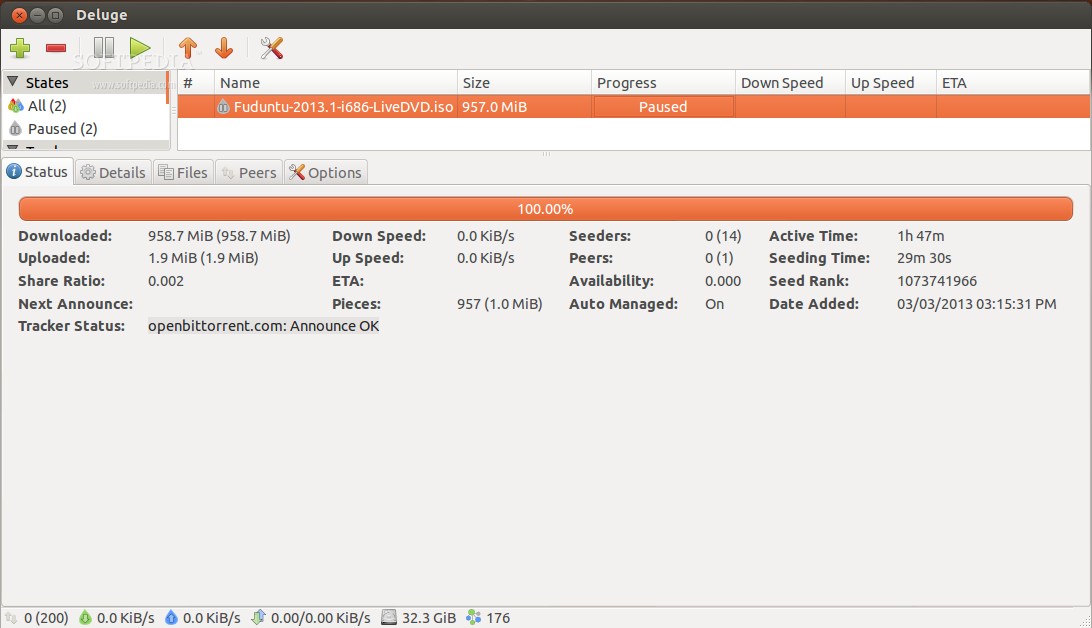
- #Deluge client stopped getting peers how to
- #Deluge client stopped getting peers full
- #Deluge client stopped getting peers password

#Deluge client stopped getting peers password

#Deluge client stopped getting peers full
What is the difference between full allocation and compact allocation?.Does Deluge support multi-tracker torrents?.Does Deluge support Initial/Super Seed?.Deluge sometimes creates files that I didn't ask it to download?.Seeding torrents have no queue position! Why?.What do all those numbers in parentheses mean?.The files tab shows a different percentage-completed than the torrent.How do I reset the settings back to default?.Where does Deluge store its settings/config?.
#Deluge client stopped getting peers how to

The configuration is then stored in $HOME/snap/deluge-lukewh/common/.config/deluge. These will be run with the default behaviour of deluge (fork). Snap service stop -disable luged-service snap service stop -disable luge-web-service If you don't want to use the daemon you can stop and disable them with: You may need to mkdir /mnt/.įor the snap to see this mount you will need to run snap connect deluge-lukewh:removable-media manually. The easiest way I've found to share downloads with users is to create a directory in your home folder and mount it to /mnt with mount -bind /mnt/ you can then add both root and your user to a group that has permissions in that folder. The following daemons will auto-start on install:ĭluged-service luge-web-serviceĭaemons run as root and the configuration is saved to /var/snap/deluge-lukewh/common/.config/deluge There are three main user interfaces (UIs): In Thinclient mode a Deluge daemon handles all the BitTorrent activity and is able to run on headless machines with the user-interfaces connecting remotely from any other platform. As Deluge heavily utilises the libtorrent library it has a comprehensive list of the features provided.ĭeluge has been designed to run as both a normal standalone desktop application and as a client-server.

Deluge contains the common features to BitTorrent clients such as Protocol Encryption, DHT, Local Peer Discovery (LSD), Peer Exchange (PEX), UPnP, NAT-PMP, Proxy support, Web seeds, global and per-torrent speed limits.


 0 kommentar(er)
0 kommentar(er)
